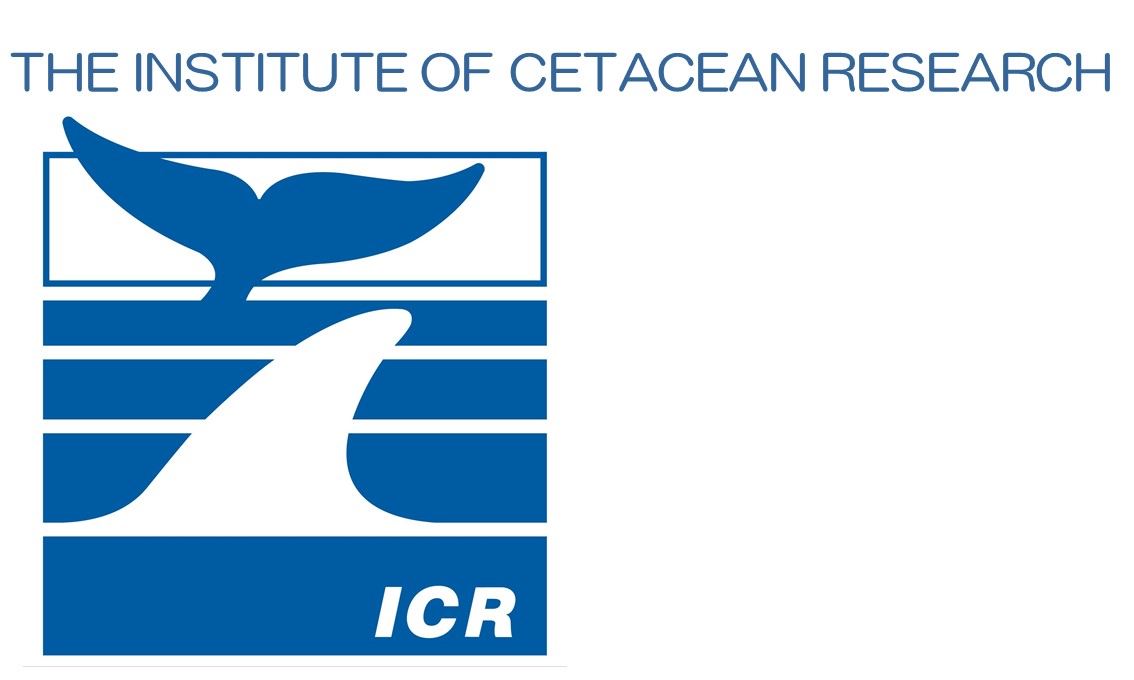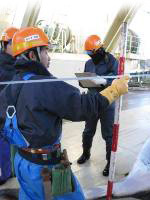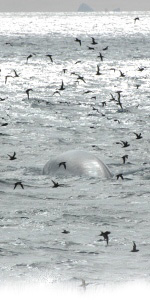- You are here:
- Home>
- English Sitemap>
- Research>
- Scientific contribution>
- Contribution to recent meetings
Scientific contribution
Contribution to recent meetings
ICR scientists have participated and contributed to the following non-IWC scientific meetings:
International meetings
Marine Ecosystem Assessment for the Southern Ocean 2018 (MEASO18)
- Assessing Status and Trends of Habitats, Key Species and Ecosystems in the Southern Ocean
The MEASO18 was held at the C3 Convention Center, Hobart, Australia from 9-13 April. One scientist from ICR participated in the meeting (Pastene). He presented a document titled 'Site-fidelity, movement ranges and abundance of southern right whales in the Antarctic Indoregion inferred from genetic tagging.’ The presentation was made under Theme 1 of MEASO18, 'Assessment'.
Annual meeting of the Convention on the Conservation of Antarctic Marine Living Resources
- Working Group on Ecosystem Monitoring and Management (CCAMLR-EMM)
The Convention on the Conservation of Antarctic Marine Living Resources (CCAMLR) is part of the Antarctic Treaty System. The Convention was opened for signature on 1 August 1980 and entered into force on 7 April 1982 thereby establishing the Commission for the Conservation of Antarctic Marine Living Resources. The goal is to preserve marine life and environmental integrity in and near Antarctica. It was established in large part in response to concerns that an increase in krill catches in the Southern Ocean could have a serious impact on populations of other marine life which are dependent upon krill for food. The CCAMLR has a Scientific Committee and several Working Groups including the Working Group on Ecosystem Monitoring and Management (EMM), which meet annually.
The 2018 meeting of the CCAMLR-EMM was held at the British Antarctic Survey, Cambridge, UK from 9-13 July. One scientist from ICR participated in the meeting (Pastene). He presented a document titled 'Population identity, site-fidelity, movement ranges and preliminary estimates of abundance of southern right whales in the Antarctic Indian sector inferred from genetic marker'. The presentation was made under the agenda item 'Ecosystem monitoring and observations'.
Annual meeting of the North Pacific Marine Science Organization (PICES)
The North Pacific Marine Science Organization (PICES) is an intergovernmental organization that promotes and coordinates marine scientific research in the North Pacific Ocean and provides a mechanism for information and data exchange among scientists in its member countries.
The 2018 meeting of the PICES was held at the Workpia Yokohama Convention Facility, Yokohama, Japan from 25 October-4 November. One scientist from ICR participated in the meeting (Tamura). He presented the study titled 'Estimation of prey consumption by marine mammals in the PICES regions-Update to Hunt et al. (2000)' as an oral presentation at the session 'Diets, consumption, and abundance of marine birds and mammals in the North Pacific'. He was also co-author of another study titled 'Spatial estimation of prey consumption by Bryde's whales in the western North Pacific during the summers of 2008-2009: Density surface model approach', that was also presented to the meeting.
Annual meeting of the North Atlantic Marine Mammal Commission (NAMMCO) Scientific Committee (SC)
The North Atlantic Marine Mammal Commission (NAMMCO) is an international body for cooperation on the conservation, management and study of marine mammals in the North Atlantic. The NAMMCO Agreement was signed in Nuuk, Greenland on 9 April 1992 by Norway, Iceland, Greenland and the Faroe Islands, and entered into force 90 days later on 8 July 1992. The agreement focuses on modern approaches to the study of the marine ecosystem as a whole, and to better understanding the role of marine mammals in the ecosystem. NAMMCO has a Scientific Committee (SC) which meets annually.
The 2018 NAMMCO SC meeting was held on board the MS Polarlys, between Bergen and Tromso, Norway from 13-16 November. Three scientists from ICR participated in the meeting (Pastene, Konishi and Takahashi) as observers from Japan. They presented the 2016-2018 Japan progress report on cetacean research as well a presentation on the whale's satellite tracking work by the ICR.
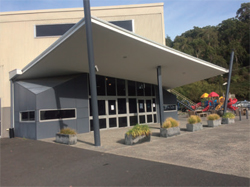 |
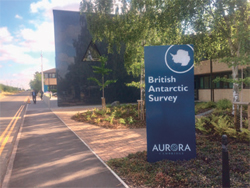 |
 |
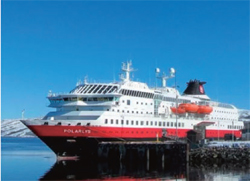 |
| C3 Convention Center, Hobart, Australia. | British Antarctic Survey, Cambridge, UK. | Workpia Yokohama Convention Facility, Yokohama, Japan. | MS Polarlys, Norway. |
National meetings
Annual meeting of the Japanese Society of Fisheries Science (JSFS)
The Japanese Society of Fisheries Science (JSFS) was established in 1932. It is a non-profit registered society dedicated to the promotion of all aspects of fisheries science. The society fulfills its global commitment by promoting science, striving to achieve sustainable development while recognizing crucial need of preserving the natural aquatic resources. It also strives to forego relationships with the industry comprising both capture and culture fisheries, the fishing environment, and the concerned trade. The main events organized by the society are the biannual meetings held in spring and autumn in one of the main cities of Japan. In this forum the members present their research activities, exchange information, and create partnerships in vital areas of research. Over 1,500 presentations are given during the meeting and a compendium of the abstracts is promptly published.
The 2018 spring meeting of the JSFS was held at the Tokyo University of Marine Science and Technology, Tokyo from 26 to 30 March, 2018. Three scientists from the Institute of Cetacean Research (ICR) participated in the meeting (Goto, Konishi and Isoda). Goto presented the study titled 'Estimation of stock structure and migratory pattern of common minke whales around Japanese waters' (co-authors Taguchi and Pastene). Konishi presented the study titled 'Tracking sei whales by satellite tags at the foraging area in the western North Pacific' (coauthors Isoda and Bando). Isoda presented the study titled 'Observation of marine debris in the Antarctic based on the Japanese Whale Research Program under Special Permit' (co-authors Tamura and Pastene). Other scientists from the ICR were co-authors in other presentations by scientists external to ICR, on topics related to estimation of abundance of sei whales (Matsuoka and Hakamada), and estimation of the feeding period of Antarctic minke whales in the Antarctic through stable isotope analyses (Tamura, Konishi and Bando).
The 2018 autumn meeting of JSFS was held at the School of Applied Biological Science, Hiroshima University, Hiroshima, from 15 to 18 September, 2018. Two scientists from the ICR participated as co-authors in presentations made to the meeting on topics related to population dynamics of sandlance in Sendai Bay (Tamura) and operating models for the North Pacific common minke whales (Goto).
Annual Meeting of the Mammal Society of Japan (MSJ)
The Mammal Society of Japan (MSJ) was established in 1987 by uniting two academic organizations, the Mammalogical Society of Japan and the Research Group of Mammalogists, which were founded in 1949 and 1955, respectively. The MSJ currently has an enrollment of over 1,100 members including students and non-professionals. The annual meeting of the society consists of academic sessions (symposia, oral presentations, and poster papers), workshops, and a business meeting.
The 2018 autumn meeting of MSJ was held at the School of Applied Biological Science, Shinshu University, Nagano, from 7 to 10 September, 2018. Three scientists from the ICR participated as co-authors in presentations made to the meeting. The topics of the presentations were on abundance estimation of blue whales in the Antarctic (Matsuoka), estimation of spatial distribution of humpback whales in the North Pacific (Matsuoka), morphological comparison of finless porpoises (Kato) and skull variation among stocks of common minke whales in the western North Pacific (Fujise and Kato).
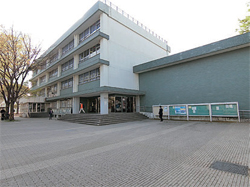 |
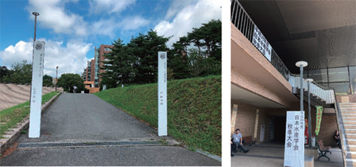 |
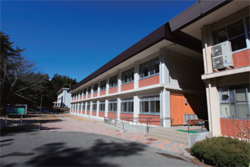 |
| Tokyo University of Marine Science and Technology, Tokyo. | Hiroshima University, Hiroshima. | Shinshu University, Nagano. |
